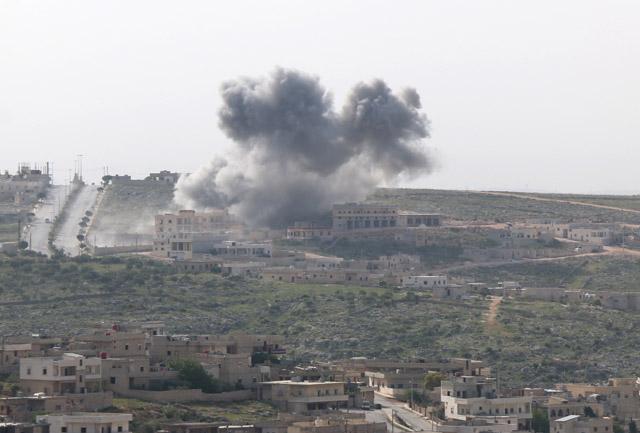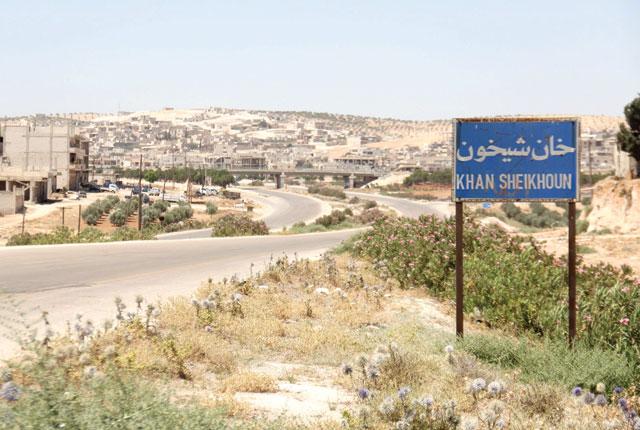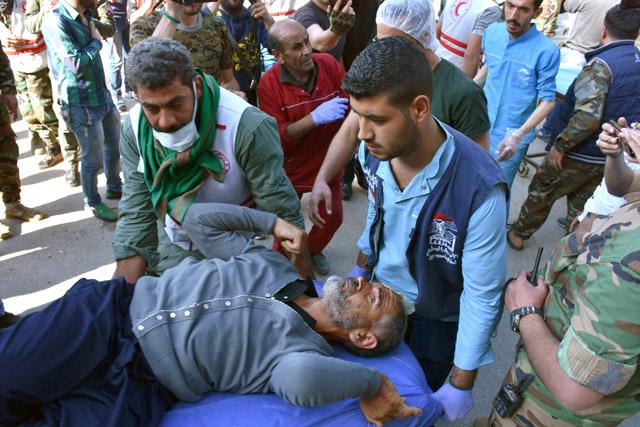You are here
Watchdog rejects Russian bid for new Syria attack probe
By AFP - Apr 20,2017 - Last updated at Apr 20,2017

Syrian boys who were injured in a car-bomb blast on April 15 while civilians were waiting at a transit point during their evacuation from the sieged government-held towns of Kafraya and Fuaa in a deal made between the government and the rebels, are wheeled on a gurney as they arrive at a hospital in the northern city of Aleppo to receive medical treatment on Wednesday (AFP photo)
THE HAGUE — The global chemical arms watchdog Thursday "overwhelmingly" rejected a Russian-Iranian move to launch a new investigation into a suspected chemical attack in Syria, delegates said, backing the probe already under way.
"The #OPCW executive council has overwhelmingly rejected the Russian and Iranian decision," the British delegation to the watchdog said in a Tweet.
A draft decision put forward by Moscow and Tehran — and obtained by AFP — had called for a new investigation by the Organisation for the Prohibition of Chemical Weapons (OPCW) "to establish whether chemical weapons were used in Khan Sheikhoun and how they were delivered to the site of the reported incident".
But it ignored that the body, based in The Hague, is already investigating the April 4 attack on the rebel-held town in Idlib province which left 87 dead, including many children.
The draft had also called for investigators to visit the Shayrat airbase — bombed by the United States after the attack — to “verify allegations concerning the storage of chemical weapons” there.
But the Russian move had “attempted to undercut” the OPCW’s existing fact-finding mission (FFM), the British delegation said in its tweet.
“Needless to say — #OPCW FFM investigation continues” and “the UK fully supports it”, it added.
The move came as OPCW head Ahmet Uzumcu said Wednesday that “incontrovertible” OPCW test results had shown sarin gas or a similar substance were used in the attack.
Samples from three people killed in the attack and seven survivors analysed at four OPCW-designated laboratories “indicate exposure to sarin or a sarin-like substance”, said Uzumcu.
Western nations have accused the Syrian regime of carrying out the suspected air strike, but Moscow, the closest ally of Syrian President Bashar Assad, has sought to clear the regime of blame.
‘What sarin fumes?’
Russian defence ministry spokesman Igor Konashenkov said Thursday: “Not one representative of the OPCW has been there [Khan Sheikhoun] in the two weeks. Where, by whom and how were the samples taken?”
“If there truly had been sarin in Khan Sheikhoun, then how can the OPCW explain the charlatans from the White Helmets hopping about in sarin fumes without protective equipment?”
The Russian-Iranian move for a new inquiry raised hackles at the OPCW executive council meeting this week.
The fact-finding team “deserves our full confidence”, the Belgian representative to the OPCW told the meeting on Wednesday.
“We don’t see the need to put in place a new structure.”
The draft decision had also sought to urge member states to “provide national experts for participation in the investigation”.
That would have enabled Moscow to deploy its own experts alongside the OPCW’s independent teams in a bid “to discredit the results” so far, one source close to the discussions told AFP.
In an unprecedented step, the OPCW’s executive council in November condemned Syria’s use of toxic weapons — the council’s first public condemnation of a member of the Chemical Weapons Convention.
It came after a joint UN-OPCW investigation concluded in October that the Syrian air force had dropped chlorine barrel-bombs from helicopters on three opposition-held villages in 2014 and 2015.
The Daesh terror group militants were also found to have used mustard gas in August 2015 in Syria.
Russia last week vetoed a UN draft resolution condemning the April 4 attack and demanding the Syrian government cooperate with an investigation, blocking Security Council action against its ally for an eighth time.
After Moscow initially said a Syrian air strike had struck a “terrorist warehouse” containing “toxic substances”, Russian President Vladimir Putin last week accused Assad’s opponents of planning to stage chemical attacks to lure Washington deeper into the conflict.
Related Articles
MOSCOW — Russian Foreign Minister Sergei Lavrov voiced "regret" in a phone call with his US counterpart Friday at Washington's opposition to
THE HAGUE — Sarin nerve agent was used in an “incident” at a northern Syrian village in late March, five days before the deadly attack on Kh
THE HAGUE — The head of a global arms watchdog said on Wednesday that "incontrovertible" test results from an alleged chemical strike in Syr


















